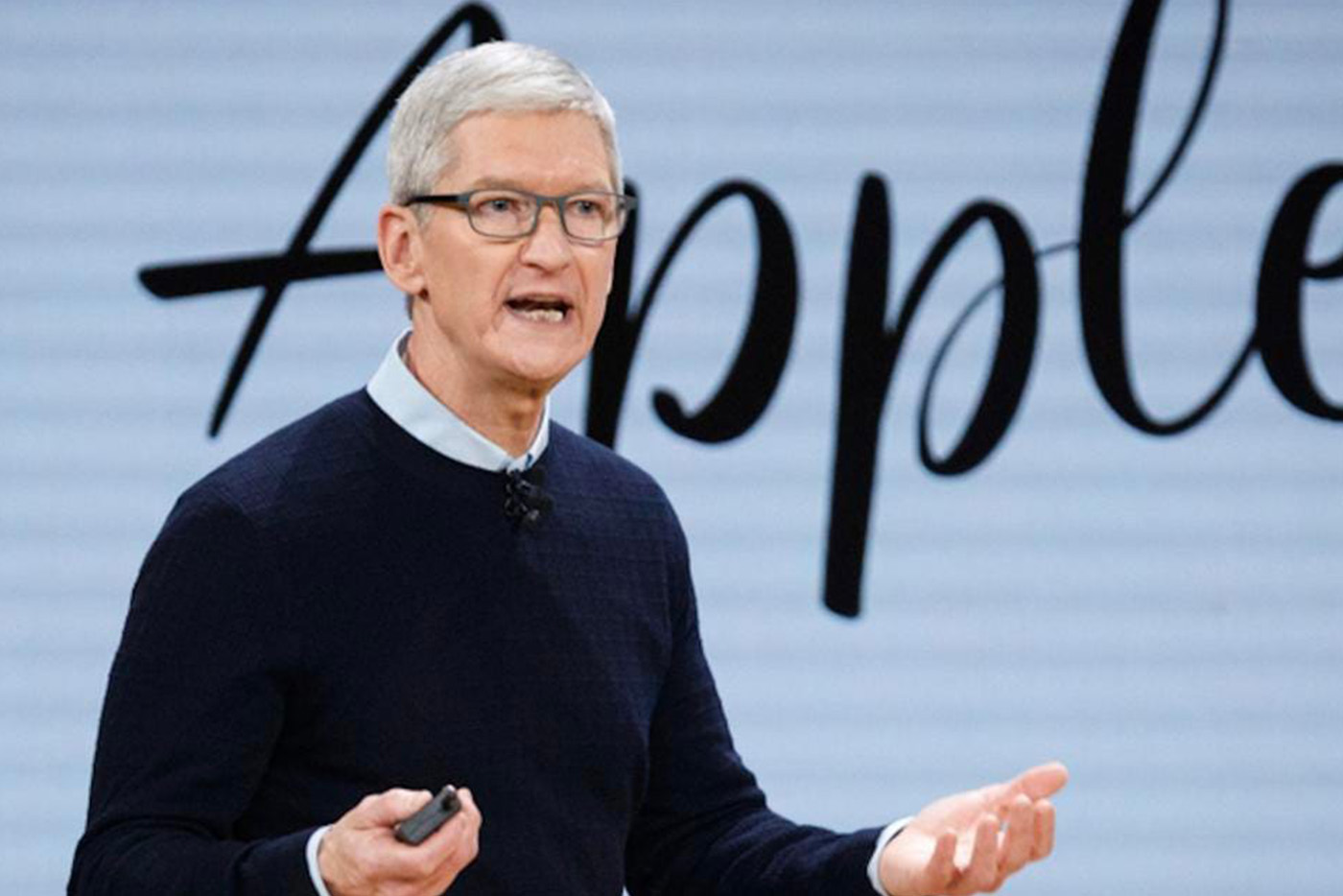Tim Cook Says The Metaverse Isn’t The Future Because People Don’t Understand It – They Might Not Have To
31 October 2022
It seems like everyone has spent the last year or so falling over themselves to tell us what the metaverse is. This week, though, Apple CEO Tim Cook showed he still “thinks different” by telling us what it isn’t – “the future.”
As reported by CNBC, Cook told the Dutch publication Bright that “I’m really not sure the average person can tell you what the metaverse is.”

It’s a fair comment. Ever since Facebook rebranded itself as Meta, one thing that has become clear is that there isn’t a great deal of consensus on the matter.
Meta founder Mark Zuckerberg talks about it as a more immersive, VR-enabled version of Facebook. The success of Fortnite and Roblox points to a future heavily influenced by the mechanics and aesthetics of video games. Proponents of the web3 platforms – such as Decentraland and The Sandbox – insist that decentralization is core to the metaverse experience. And giants of the world of office and productivity software – Microsoft and Adobe, for example – talk of the “enterprise metaverse.”
Cook, on the other hand, has mostly avoided the “m” word entirely, until now, and is keener to talk about the related technology of augmented reality (AR). Apple has not announced any plans to release VR products, but is strongly believed to be developing an AR product known as Apple Glasses.
My own take on what the metaverse will be – or in fact, is – is quite simple. It’s a catch-all term that describes what the internet will evolve into next.
We've already had the static web pages of the world wide web, the user-generated web of social media, and the app-driven, internet-everywhere world of the mobile web. Each new “generation” of the internet has brought profound and widespread changes to the way we interact with technology and use it to help us go about our daily lives, radically transforming the way we communicate, socialize, work, play, and shop. All of them have taken place within the space of a quarter of a century, and one thing is for certain – it won’t end there.
There will be other developments further along the road – perhaps not too far in the future – that will make the digital domain we inhabit today look as antiquated as a Geocities web page from 1998.
And even if the term “metaverse” itself fades out of use before we arrive at that point (which, personally, I don't think will be a bad thing at all), whatever that happens to be will effectively be the metaverse.
It may very well be that it bears little resemblance to what we currently think of as the metaverse today – the kiddy cartoon worlds offered by the gaming platforms, the strangely unsettling, hollow-eyed avatars of Horizons, or the anarchic, free-spirited domain of the decentralized web3. Cook could be right that these are all too weird or too niche for mainstream adoption. After all, it was grandmas, not gamers, that drove Facebook to achieve stratospheric success.
But that doesn’t mean that the core components of those platforms – the elements that define them as being a generation beyond the most popular platforms of today – won’t be the building blocks of the “next level” internet.
Basic Elements of the Metaverse
Let’s look at those building blocks, then. Firstly, it’s generally assumed that the internet will become more immersive and experiential.
The closely related technologies that, together, are often labeled as extended reality (XR) or mixed reality (MR) are the tools that are most likely to allow us to achieve this greatly enhanced level of immersion. In other words, VR and AR.
It seems unlikely that the ongoing trend of us spending more and more of our time online and on screens is likely to reverse any time soon. If this is the case, its very likely we will look towards environments that engage more fully with our senses and make our time in virtual worlds more stimulating and exciting.
Will this mean we spend increasing amounts of our time in VR? Possibly – but I agree with Cook when he says that, in the short term, at least, AR has the potential to be more transformative. The most interesting and exciting aspect of the metaverse, to me, is not the ability to lock us into imaginary virtual worlds but to blend the boundaries between the real and the virtual. Allowing us to take the best of each domain – such as the people we know and love from the real world and the speed and convenience of the digital world – and merge them together into one hybrid experience.
Another core component of the metaverse is persistence. This means that although we will be able to do anything we want – working, playing, socializing, shopping – it will all take place on a unified platform, with a common set of rules, and presenting ourselves in a consistent way – probably via an avatar.
Thirdly, there’s the element of decentralization. Blockchains and other aspects of distributed computing, in theory, give us the opportunity to create virtual worlds that are outside of the control of monolithic corporations. The concept of the decentralized autonomous organization (DAO) could potentially allow us to create true democracies online – social networks and similar platforms that are under the control of their users rather than whoever happens to own the servers that run the service and store the data. Distributed storage – as used by blockchain – means there is no one place where the data is stored centrally that one person, business, or government could potentially take control of. If it achieves widespread adoption, then web3 could lead to an internet that’s radically different from what we have today, owned and administered as it is by global mega-corporations.
The Future
In short, buying into the metaverse might not require us to believe in, or even really understand, any of these basic elements. If the architects of the brave new internet manage to pull them together in a way that makes it easier, more interesting, and more fun for us to do more things online, then that could be enough. After all, it wasn’t necessary for the general public to have a deep understanding of how cloud-hosted media streaming works for Netflix and Spotify to utterly transform the movie and music industries.
It’s true that we may not call it "the metaverse" – just as we don't often hear people these days talking about "the world wide web" other than in a historical context. But I believe that the digital environments of tomorrow will be built around immersion, persistence, and, to some extent, decentralization – no matter what name we choose to use for them!
To stay on top of the latest on the latest business and tech trends, make sure to subscribe to my newsletter, follow me on Twitter, LinkedIn, and YouTube, and check out my books ‘Tech Trends in Practice’ and ‘Business Trends in Practice, which just won the 2022 Business Book of the Year award.
Related Articles
The AI-Powered Citizen Revolution: How Every Employee Is Becoming A Technology Creator
Something remarkable is happening in organizations around the world.[...]
11 Most Reliable AI Content Detectors: Your Guide To Spotting Synthetic Media
Since the launch of ChatGPT just two years ago, the volume of synthetic – or fake – content online has increased exponentially.[...]
6 Mistakes IT Teams Are Guaranteed To Make In 2025
The next wave of artificial intelligence isn't just knocking at enterprise doors - it's exposing fundamental flaws in how organizations approach technology transformation.[...]
2025’s Tech Forecast: The Consumer Innovations That Will Matter Most
Consumer technology covers all of the tech we buy to make our lives more convenient, productive or fun.[...]
7 Healthcare Trends That Will Transform Medicine In 2025
Healthcare has evolved dramatically in recent years, with technology driving countless new opportunities, just as demographic and societal factors have created new challenges.[...]
The Simple ChatGPT Trick That Will Transform Your Business AI Interactions
I believe ChatGPT and other generative AI tools can help pretty much any business.[...]
Sign up to Stay in Touch!
Bernard Marr is a world-renowned futurist, influencer and thought leader in the fields of business and technology, with a passion for using technology for the good of humanity.
He is a best-selling author of over 20 books, writes a regular column for Forbes and advises and coaches many of the world’s best-known organisations.
He has a combined following of 4 million people across his social media channels and newsletters and was ranked by LinkedIn as one of the top 5 business influencers in the world.
Bernard’s latest book is ‘Generative AI in Practice’.










Social Media